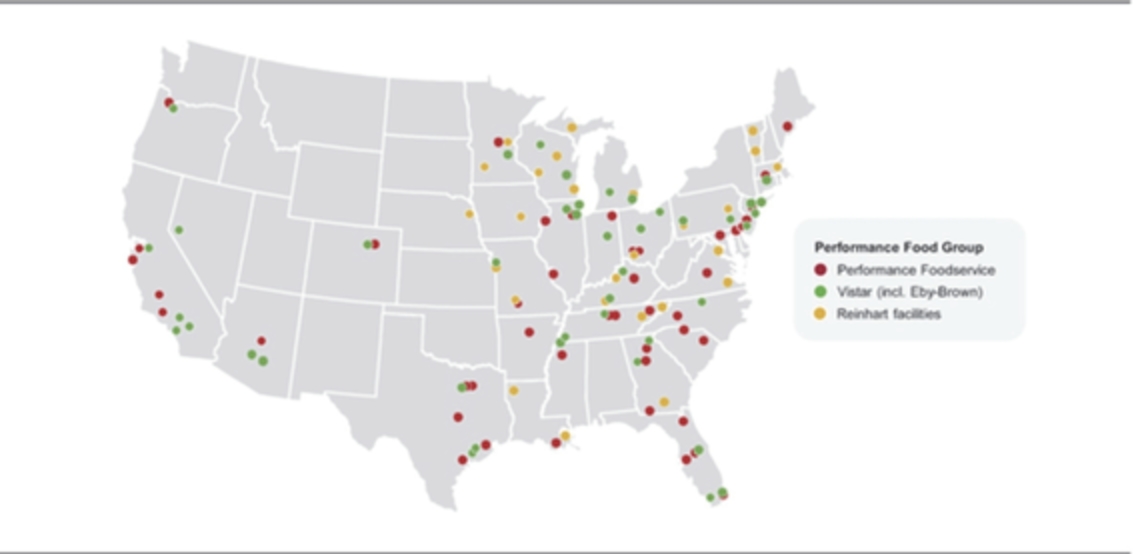These broad market and industry fluctuations may adversely affect the market price of our common stock, regardless of our actual operating performance. In addition, price volatility may be greater if the public float and trading volume of our common stock is low.
Furthermore, the market price of our common stock may fluctuate significantly following consummation of the Proposed Reinhart Acquisition if, among other things, the combined company is unable to achieve the expected growth in earnings, or if the operational cost savings estimates in connection with the integration of our and Reinhart’s businesses are not realized, or if the transaction costs relating to the Proposed Reinhart Acquisition are greater than expected, or if the financing relating to the transaction is on unfavorable terms. The market price also may decline if the combined company does not achieve the perceived benefits of the Proposed Reinhart Acquisition as rapidly or to the extent anticipated by financial or industry analysts or if the effect of the Proposed Reinhart Acquisition on the combined company’s financial position, results of operations or cash flows is not consistent with the expectations of financial or industry analysts. In addition, the results of operations of the combined company and the market price of our common stock after the completion of the Proposed Reinhart Acquisition may be affected by factors different from those currently affecting the independent results of operations of each of our and Reinhart’s business.
In the past, following periods of market volatility, stockholders have instituted securities class action litigation. If we were involved in securities litigation, it could have a substantial cost and divert resources and the attention of executive management from our business regardless of the outcome of such litigation.
Because we have no current plans to pay cash dividends on our common stock for the foreseeable future, you may not receive any return on investment unless you sell your common stock for a price greater than that which you paid for it.
We intend to retain future earnings, if any, for future operations, expansion, and debt repayment and have no current plans to pay any cash dividends for the foreseeable future. The declaration, amount and payment of any future dividends on shares of common stock will be at the sole discretion of our Board of Directors. Our Board of Directors may take into account general and economic conditions, our financial condition, and results of operations, our available cash and current and anticipated cash needs, capital requirements, contractual, legal, tax and regulatory restrictions, implications on the payment of dividends by us to our stockholders or by our subsidiaries to us and such other factors as our Board of Directors may deem relevant. In addition, our ability to pay dividends is limited by covenants of our existing and outstanding indebtedness and may be limited by covenants of any future indebtedness we or our subsidiaries incur. As a result, you may not receive any return on an investment in our common stock unless you sell our common stock for a price greater than that which you paid for it.
If securities analysts do not publish research or reports about our business or if they downgrade our stock or our sector, our stock price and trading volume could decline.
The trading market for our common stock relies in part on the research and reports that industry or financial analysts publish about us or our business. We do not control these analysts. Furthermore, if one or more of the analysts who do cover us downgrades our stock or our industry, or the stock of any of our competitors, or publish inaccurate or unfavorable research about our business, the price of our stock could decline. If one or more of these analysts ceases coverage of the Company or fails to publish reports on us regularly, we could lose visibility in the market, which in turn could cause our stock price or trading volume to decline.
Future sales, or the perception of future sales, by us or our existing stockholders in the public market following this offering could cause the market price for our common stock to decline.
After this offering, the sale of shares of our common stock in the public market, or the perception that such sales could occur, could harm the prevailing market price of shares of our common stock. These sales, or the possibility that these sales may occur, also might make it more difficult for us to sell equity securities in the future at a time and at a price that we deem appropriate.
As of November 8, 2019, we had a total of 105,492,004 shares of common stock outstanding, which included 1,106,866 shares of restricted stock. All shares sold in this offering will be freely tradable without registration under the Securities Act of 1933, as amended (the “Securities Act”), and without restriction by persons other than our “affiliates” (as defined under Rule 144 of the Securities Act (“Rule 144”)), including our directors, executive officers and other affiliates, whose shares may be sold only in compliance with the limitations described herein.






